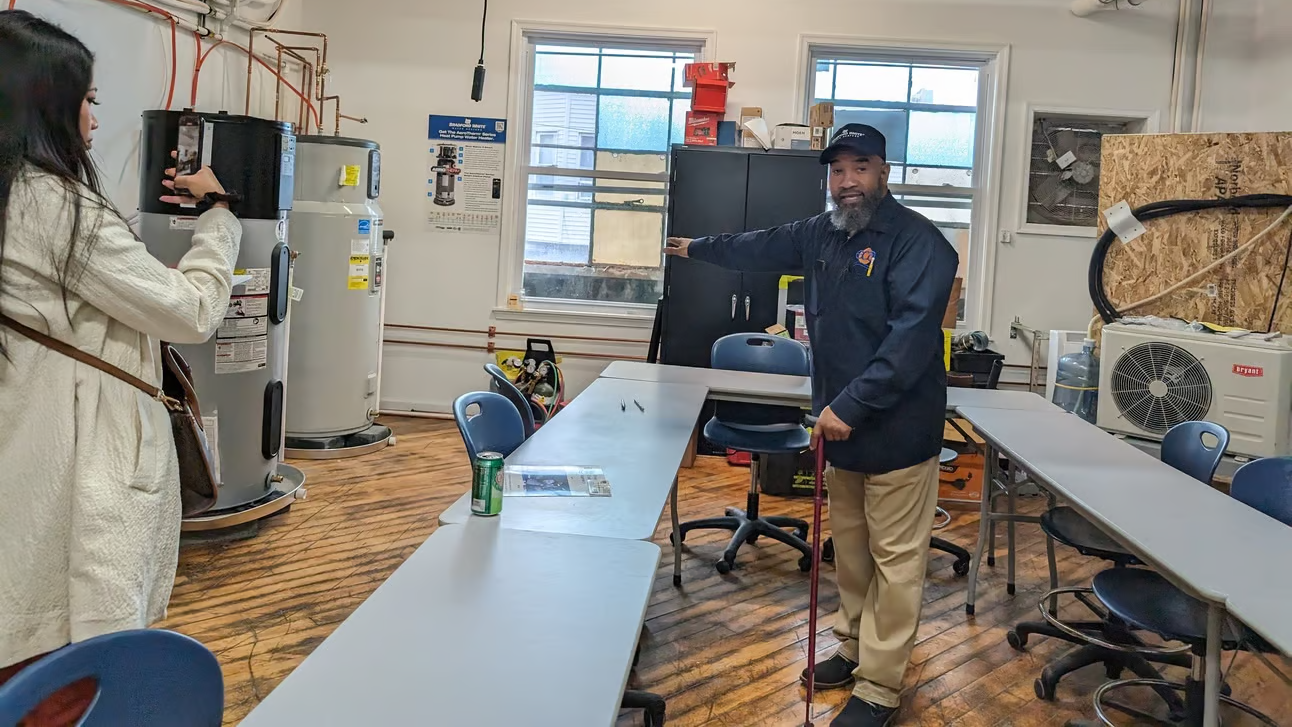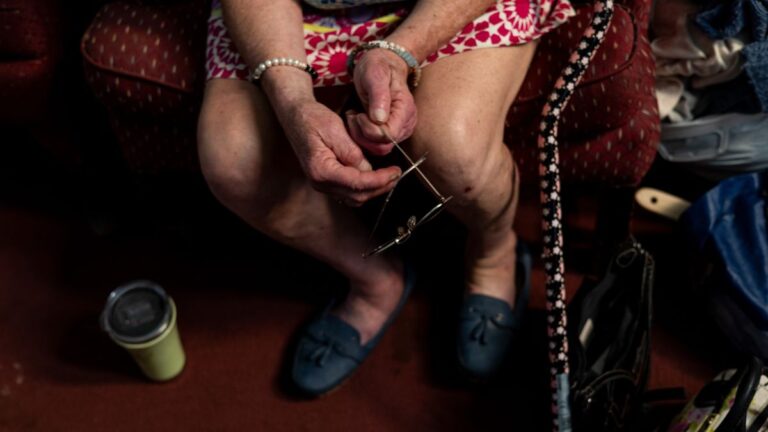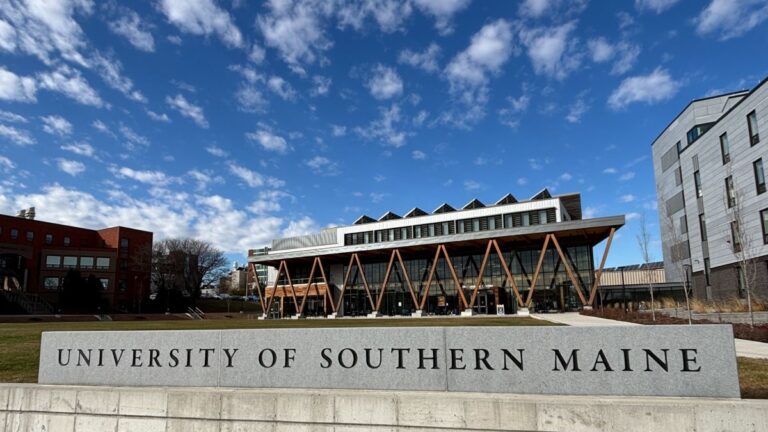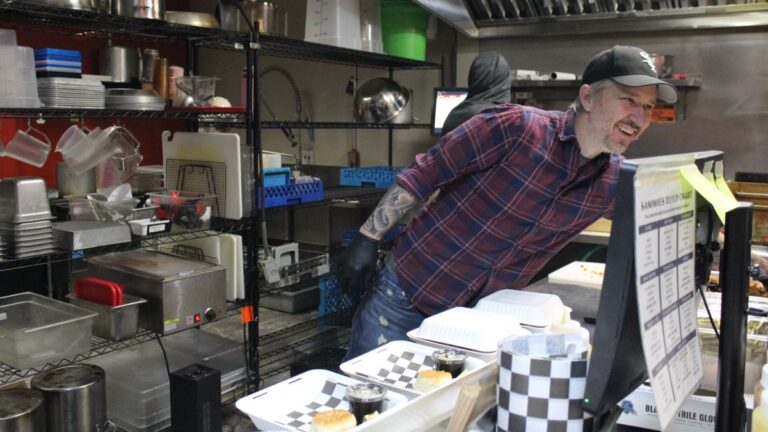A first-of-its-kind training center for heat pump technicians can be found in an unsuspecting North Philadelphia warehouse where, more than 150 years ago, Union Army uniforms were manufactured during the Civil War.
The building in the city’s West Kensington neighborhood is now LEED Gold-certified and home to the Energy Coordinating Agency, a nonprofit that provides home energy efficiency, repair, job training and education services to predominantly low-income people in Philadelphia and Delaware. CEO Steve Luxton said they work at the intersection of climate and socioeconomic justice.
The ECA has trained and certified thousands of workers over the years in air sealing, insulation, solar and environmental remediation. They added their heat pump lab last year with the support of manufacturers who wanted a workforce of installers that knew the particulars of their equipment and could be the tip of the spear to help customers make the heat pump transition successfully.
I led a few dozen reporters on a tour of the ECA last weekend as part of the annual Society of Environmental Journalists conference in Philly. It turns out the Mid-Atlantic is seeing many of the same challenges and opportunities as Maine when it comes to encouraging heat pumps and other climate-friendly upgrades.
“These systems got a bad name because they had bad installers,” said Jackie Robinson, the ECA’s lead trainer. “Most guys don’t want to install it because they don’t understand the technology. … You gotta untrain ‘em to train ‘em.”
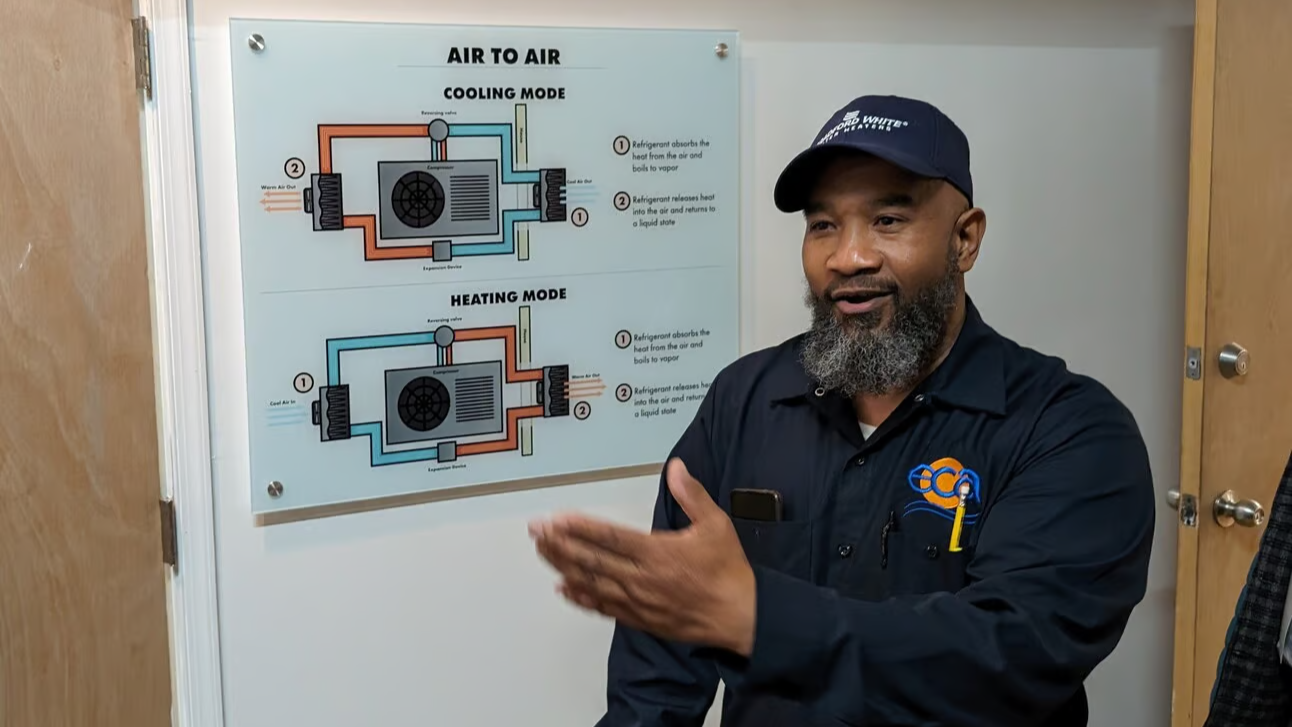
Problems with heat pumps — such as weak heat, sky-high electric bills or frequent breakdowns — aren’t necessarily inherent to the technology. They may more likely be the result of poor installation, sizing or maintenance, experts say.
One reason — heat pumps have changed a lot over the years, getting far more efficient in the cold, for example. The best heat pump for your home now may not be the same as the options your contractor would have had five years ago.
But more than that, this technology is just different than a fossil fuel-fired or electric resistance system. It takes specialized training to pick the right size and style of heat pump or heat pumps for a home, and to install it perfectly.
Making a heat pump run as efficiently as possible also very often requires weatherization first, experts say, so that the unit isn’t trying to make more or less heat than the home ideally would need, or letting all that heat go to waste.
This means that choosing the right heat pump contractor for your home requires asking questions and seeking multiple opinions. The advocacy group Rewiring America has this guide to evaluating quotes from heat pump installers.
And don’t forget weatherization and conservation as key parts of the equation.
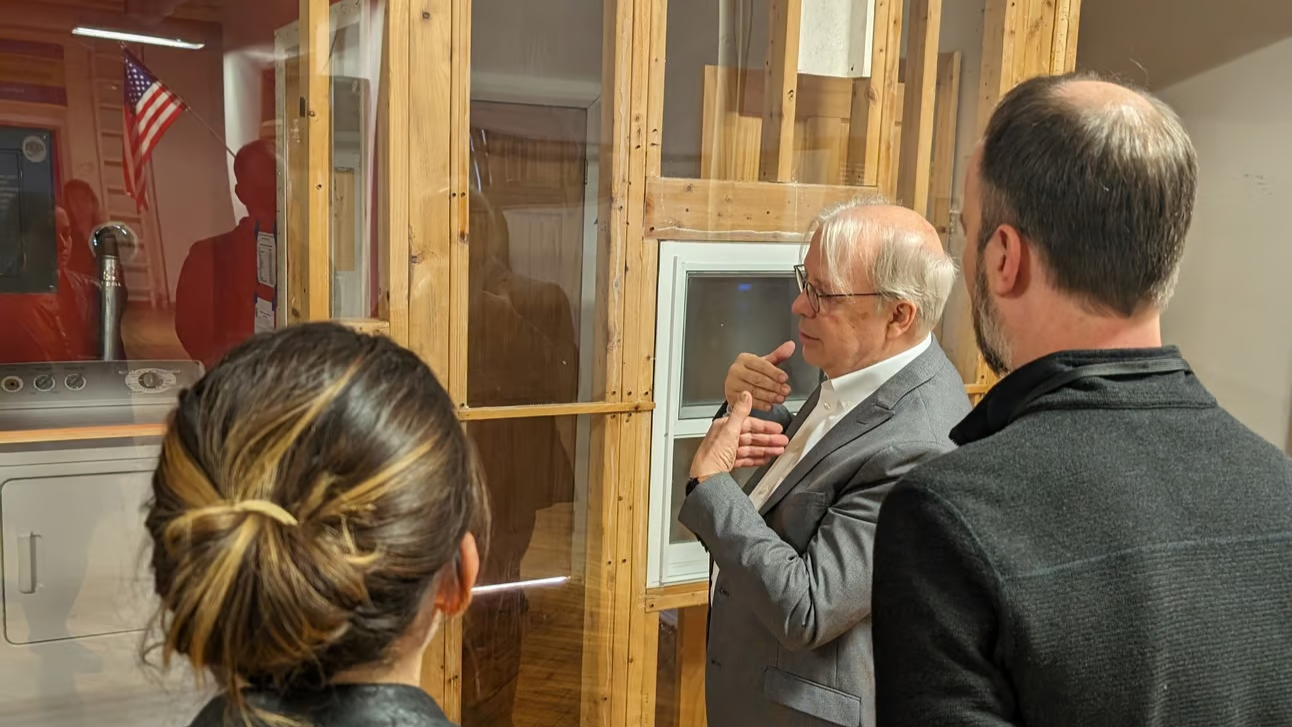
In the ECA’s insulation training area, Luxton, the CEO, showed reporters an air-sealed window and other features of a tight home envelope. Windows, he said, should generally not be your weatherization priority — they’re really expensive to upgrade, and far more of your wasted energy will likely be addressed with good insulation, especially in the basement or attic.
Two exceptions: Luxton said to prioritize replacing aluminum-frame windows and any old single-paned windows that you can never get to close all the way. Both are common features in old New England homes. And both can be insulated temporarily with a plastic wrap insert like those made by WindowDressers.
As for one of the best investments you can make? Luxton’s answer was not an investment at all. In his view, the best thing a consumer can do to lower their energy costs is just turning down the temperature.
Ease up on your heating or cooling setting, ideally by 5 or so degrees, all the time. “The thermostat is the gas pedal of your house,” he said. No matter how efficient your home might be, a good 10% of your energy costs “are you.”
To that end, the ECA preaches that efficiency and conservation are two sides of the same coin. Efficiency is how much you can save with good appliances, insulation and the like. Conservation is what you do once those systems are in place — how you use them cost-effectively, with the lightest possible touch.
This makes consumer education a huge part of the ECA’s work, as it is for local groups like Efficiency Maine, county social service agencies and beyond. ECA training director Walt Yakabosky said they try to show people why they should turn down the thermostat, put on a sweater, wear light-colored clothes in the summer, and not rush to open windows when it’s too hot or cold inside.
In addition to teaching their installers to provide this education to clients, the ECA offers it directly at 16 Neighborhood Energy Centers across Philly, where they help people streamline their utility bills (even cable!), deal with the prospect of shutoffs and get linked up with free or low-cost home energy upgrades.
“Because of our work, we can see the need for electrification,” Yakabosky said. The low-income, Black and brown people the ECA predominantly serves, he said, “would be left out” without efforts like those of his agency.
Maine is seeing a proliferation of these local energy navigator services that help households who might never access such upgrades otherwise take full advantage of the climate and energy transition. Officials say energy coaching may even be a recommendation in the next state climate action plan.


